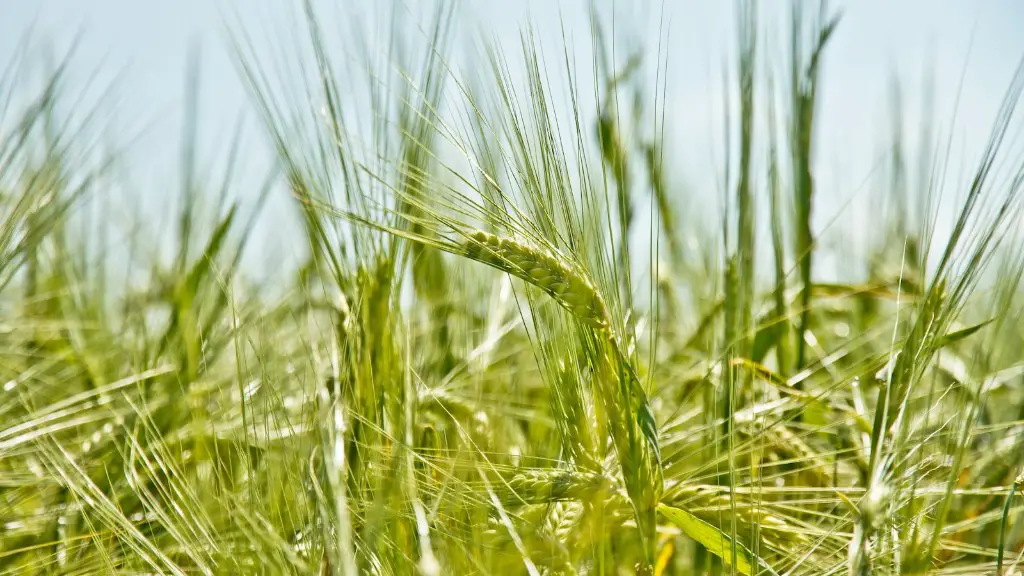Urban agriculture is an important part of the food system in growing cities. It combines agriculture, urban planning and ecology. The main purpose of urban agriculture is to develop sustainable food production systems in urban areas. This can help to reduce pressure on the environment, reduce hunger and malnutrition, reduce unemployment, promote health and nutrition and provide economic benefits.
Urban agriculture can be divided into three types: market-oriented, subsistence and community supported. Market-oriented urban agriculture focuses on producing and selling food products, while subsistence production focuses on providing food for one’s own family or a small community. Community supported urban agriculture is a collaboration between a local community and urban producers that helps to ensure a secure supply of food products from local sources.
Urban agriculture has the potential to improve urban food security and reduce poverty. This can be done by producing a secure supply of locally grown food, reducing the amount of imported food and creating new job opportunities. Urban agriculture can also help to reduce the environmental impacts of food production by reducing the amount of resources used in the production, transport and disposal of food products.
Urban agriculture can also be used to improve biodiversity and promote environmentally-friendly practices. Urban farmers can choose to use sustainable and organic methods of production such as integrated pest management, crop rotation and composting. These methods can help to reduce water, soil and air pollution, thus improving the environment.
Urban agriculture also has the potential to create stronger community ties. Growing food in an urban setting helps to create a shared sense of ownership and can foster a feeling of connectedness to the local environment, as well as to other members of the community.
Urban agriculture can be a powerful tool for improving urban living. It has the potential to increase access to fresh food, create economic benefits and promote community ties while reducing environmental impacts. It is an important component of the modern food system and should be encouraged in cities around the world.
Economic Benefits
Urban agriculture can provide economic benefits in many ways. By creating new job opportunities, it can help to reduce unemployment. It can also help to boost local businesses and economies, as products produced in urban agriculture can be sold in local markets. This can help to increase the economic activity of an area and improve the overall well-being of the local population.
Urban agriculture can also stimulate investment in the local economy. This can be done through government incentives, such as tax breaks, or through private investments from businesses and individuals. Investment in urban agriculture can create a more favourable economic climate, which can attract more businesses and investment to the area.
By providing fresh food products, urban agriculture can also help to reduce the cost of food for households. This can be done by reducing the amount of imported food, which can be more expensive due to transport costs. Urban agriculture can also help to reduce the cost of food for business, as local food products can be sourced more cheaply than imported ones.
Finally, urban agriculture can help to create employment and entrepreneurial opportunities. This can be done by investing in business opportunities such as urban farms, food processing plants and other food-related enterprise. This can improve the economic prospects of a region and create much-needed employment.
Health Benefits
Urban agriculture can also provide health benefits. By providing access to fresh, locally grown food, it can help to reduce malnutrition and improve the overall nutrition of a population. It can also help to reduce the incidence of food-borne illnesses, as fresh foods are less likely to contain bacterial contaminants.
Urban agriculture can also help to reduce air pollution by reducing the amount of exhaust from the transportation of food. This can be done by decreasing the distance that food needs to be transported, as well as the amount of transport needed. This can help to improve air quality and reduce respiratory diseases, such as asthma.
Urban agriculture can also promote physical activity by encouraging individuals to take part in growing their own food. This can help to reduce the risk of obesity and other related health conditions, as well as providing mental and emotional benefits such as increased confidence and self-esteem.
Finally, urban agriculture can help to improve access to health care. By providing access to fresh and nutritious food, it can help to reduce the burden of chronic diseases, such as diabetes, heart disease and obesity. This can help to reduce the strain on local health care systems, as well as reduce the cost of health care.
Environmental Benefits
Urban agriculture can also provide environmental benefits. By producing food locally, it can decrease the amount of energy and resources used in food production, transport and disposal. This can help to reduce soil and water pollution, as well as air pollution from exhaust fumes.
Urban agriculture can also help to promote biodiversity by providing habitats for a range of plants, animals and insects. This can help to create a healthier environment, as well as providing ecosystem services such as pollination and pest control.
Urban agriculture can also help to reduce the amount of waste produced in cities. This can be done by producing compost and mulch from local organic waste, which can then be used to fertilize urban farms. This can help to reduce the amount of waste going to landfills and reduce the use of chemical fertilizers.
Finally, urban agriculture can help to create green spaces in cities. This can help to improve air quality, provide aesthetic benefits and provide a relaxing environment in which to live and work. This can help to reduce the stress levels of city dwellers and create a sense of wellbeing.
Social Benefits
Urban agriculture also has social benefits. It can help to create stronger community ties by providing a sense of ownership and shared responsibility. Growing food can also provide educational opportunities, as individuals learn about the importance of sustainable practices. This can help to foster an appreciation for nature and the environment.
Urban agriculture can also provide employment opportunities for those who may be unemployed or underemployed. This can help to reduce poverty and inequality, as well as providing new job opportunities. It can also help to improve the economic prospects of a region, as entrepreneurs can develop businesses related to urban agriculture.
Urban agriculture can also provide a source of food during times of crisis or emergency. This can help to minimize the adverse effects of food shortages, as well as providing a sense of security for local residents.
Finally, urban agriculture can be used to promote social justice. It can help to reduce food deserts, which are areas where access to fresh and nutritious food is limited. This can help to reduce health disparities and improve access to healthy food for all.
Fostering Sustainable Practices
Urban agriculture can help to foster sustainable practices. By producing food locally, it can reduce the amount of resources used in the production, transport and disposal of food products. This can help to reduce water and soil pollution, as well as air pollution from exhaust fumes.
Urban agriculture can also help to promote organic and sustainable farming methods, such as integrated pest management and crop rotation. These practices can reduce the use of chemical fertilizers and pesticides, thus reducing the environmental impact of food production.
Urban agriculture can also help to reduce waste by utilizing compost and mulch made from local organic waste. This can help to improve soil quality, as well as reducing the amount of waste going to landfills. It can also help to improve water quality, as unneeded runoff and toxins are absorbed by the soil and recycled into the environment.
Finally, urban agriculture can promote energy efficiency. Urban farms can use renewable energy sources such as solar and wind in order to reduce the amount of electricity needed for production. This can help to reduce the environmental impact of food production, as well as reducing the cost of food for households.





